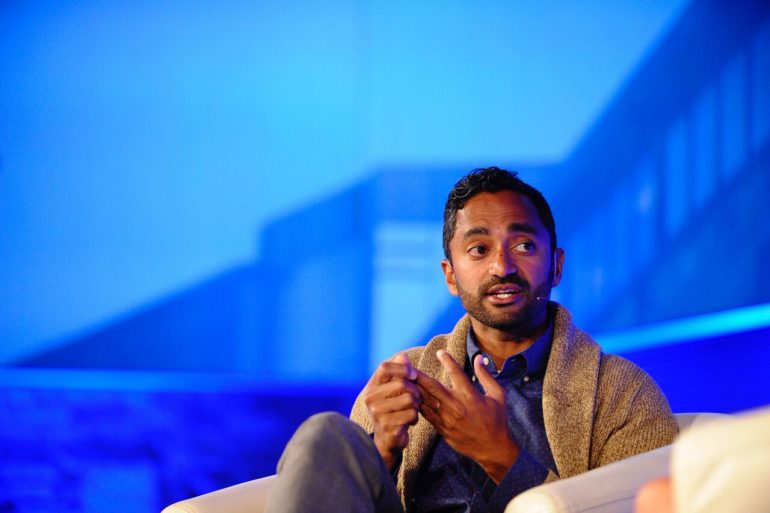The recent Waterloo Innovation Summit, an event co-organized by the University of Waterloo and Communitech, gave hundreds of entrepreneurs, academics, and policymakers a chance to network and hear from members of the tech community about the direction of innovation in Canada.
Of the many talks that took place at the conference, one that resonated with many of the attendees was the final one, where Chamath Palihapitiya, the founder of the venture fund Social Capital, offered a deep and critical assessment of Canada’s position as a global innovation hub.
The Sri Lankan-born, Canadian-raised Palihapitiya is known to be bold and outspoken in the tech community as he regularly addresses contentious topics like diversity and inclusiveness in tech, and through his work, actively seeks solutions to the world’s toughest problems. At Social Capital, Palihapitiya invests in breakthrough companies in healthcare, education, financial services, and mobile and enterprise software. Prior to becoming an investor, Palihapitiya was a member of Facebook’s senior executive team where he contributed to the social media platform’s rapid growth; Palihapitiya is also an owner and director of the NBA’s Golden State Warriors. Throughout his career as an entrepreneur and venture capitalist, Palihapitiya has used his street smarts and educational background in electrical engineering from the University of Waterloo to make it his goal to solve massive global problems.

At the Waterloo Innovation Summit, Palihapitiya talked about how Canada’s economy can succeed if the country’s tech and business sectors engage in greater diversity and inclusiveness. He pointed to the systemic inequities that exist in Canada and other innovation hubs around the world, which can prevent these hubs from growing, succeeding, and ultimately investing in effective solutions to major problems.
“You have to internalize that there are structural things happening here and that we are in an inefficient system,” said Palihapitiya. “If we’re ever going to get away from the fact that there’s a cloistered group of people that have amassed immense amounts of power — and I think that’s only going to get exacerbated — we just have to balance with a more inclusive amount of people that are at the table that can fight to reallocate capital and ideas.”
When Canadian startups fail or hit a roadblock, they aren’t willing to understand and assess what went wrong to determine how they can redesign and improve their products and ideas.
At the summit, Palihapitiya also emphasized that while Canadian companies have an upper-hand in innovation as they tackle important issues in the FinTech, education, and healthcare sectors, instead of focusing solely on a company’s products or how much money someone makes, Canadian startups and aspiring entrepreneurs need to make sure they understand the context of the issues their businesses address and the purpose of their ideas. With that in mind, Palihapitiya raised some important questions that companies should be thinking about.
“How do you get a group of people to understand the context of what you’re doing? How do you make it analytical enough so it’s measurable?” asked Palihapitiya. “Have a systemic way of understanding how to make a company successful.”
Palihapitiya further hammered home this point by giving the example of his own life and success as venture capitalist. Although he was raised in a low-income family in Sri Lanka, Palihapitiya had the privilege of attending a good high school in Ottawa, and Canada’s most innovative post-secondary institution, the University of Waterloo, which helped him understand the gap between the rich and poor. Because he experienced the personal struggle of poverty, it pushed him to seek solutions for global problems. Palihapitiya says it’s this kind of mindset — experiencing a hardship or understanding an issue that one deeply cares about — that will encourage new and future entrepreneurs to come up with innovative solutions, and raise Canada’s position as an innovation hub. While it was easy for him to say this to the attendees at the summit, Palihapitiya says he’s still trying to figure out how he’ll make his kids enter this mindset.
“I needed to be rich because I was so poor. How can I make the kids struggle in a way that will make them want to achieve great things?” said Palihapitiya. “I think what it comes down to is a personalized struggle of something you care about.”
“Celebrate failure…try things and not get it right. All we will ever do is learn or be right, we are never wrong.”
While Palihapitiya believes that Canada’s startup culture and ecosystem are growing, he also says that when Canadian startups fail or hit a roadblock, they aren’t willing to understand and assess what went wrong to determine how they can redesign and improve their products and ideas. He says “embracing wrongness” and understanding the context of various issues will make Canada stand out as a global innovation hub.
“I think in Canada we’re missing one big thing. Silicon Valley works because there aren’t consequences for being wrong. There’s a celebration of wrongness more than there’s a celebration of rightness,” said Palihapitiya. “We too often co-opt people into a traditional mindset of performance so we have brittle borders. Celebrate failure and create boundaries. Try things and not get it right. All we will ever do is learn or be right, we are never wrong.”
Overall, the bold Palihapitiya left attendees thinking about where Canada succeeds, and where Canada can improve when it comes to innovation, making a call to various stakeholders to create a shift in the country’s mindset.


